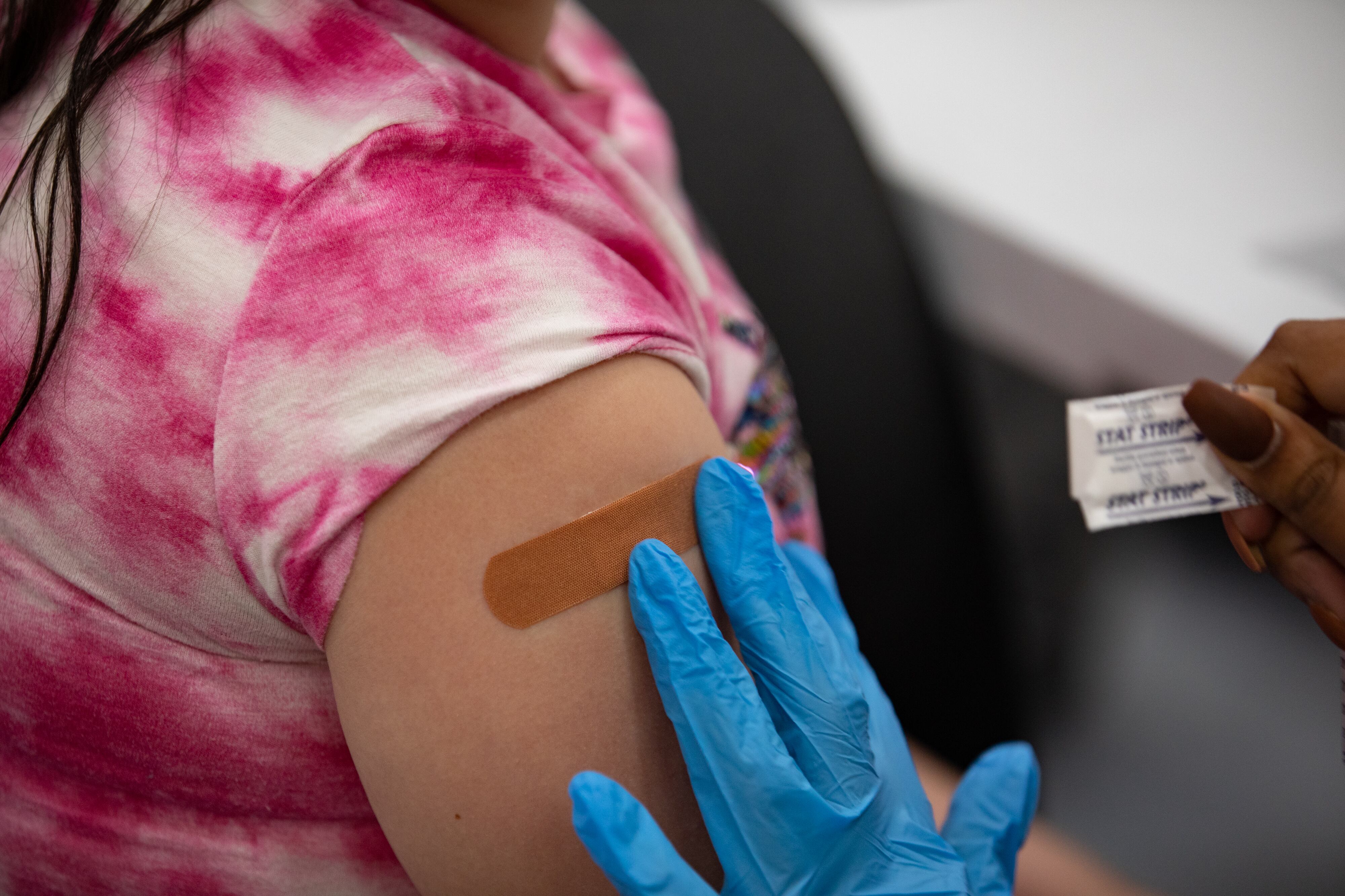The nation’s preschoolers and infants, the youngest potential recipients of COVID vaccines, may have access to their first dose as soon as next week.
The Food and Drug Administration authorized both Moderna and Pfizer shots for America’s youngsters Friday morning, following a unanimous approval from its advisory board.
Pending a final signoff from the Centers for Disease Control and Prevention, anticipated this weekend, children as young as six months will be eligible to get the shot, a full year and a half after vaccines first became available to adults.
But polls show that most parents of children under 5 are hesitant to get their kids vaccinated. Efforts to change that are likely to run up against some of the same challenges public health officials — and many schools — have faced in raising vaccination rates among older students.
Parents “want to do what’s best for their children, and there’s a lot of conflicting information out there,” said Susan Hassig, an associate professor of epidemiology at Tulane University.
The vaccination numbers for kids ages 5 to 11, approved last fall, are still relatively low. Across the country, only about 36% of kids in that age group have received at least one dose of a COVID vaccine, according to the American Academy of Pediatrics’ analysis of CDC data. The number drops to 29% for children who have received both doses.
In some cities, rates of pediatric vaccinations are lower among children from low-income families and children of color.
Schools can and have played a part in trying to inch those numbers higher by making the shots accessible and sometimes providing access to trusted community experts.
Teachers on Chicago’s South Side took an all-hands-on-deck approach, making TikTok videos to dispel vaccine-related myths. New York City schools started offering vaccines to 5- to 11-year-olds as soon as they could, incentivizing families with $100 debit cards when their kids were vaccinated on site.
In Detroit and Philadelphia, districts established various programs to make vaccines accessible to any student who wanted one. And in Newark, schools were part of a successful citywide campaign to increase the youth vaccination rate last summer.
But hesitancy remains. Among parents of children under 5, only about one in five are eager to get their child vaccinated right away, according to a survey conducted by the Kaiser Family Foundation in early May.
A larger 38% say they plan to wait and see how the vaccine is working for others, 27% say they will “definitely not” get their child vaccinated and 11% say they will only do it if it becomes mandated, according to the survey.
For the families that are hesitant, Anna Bershteyn, an assistant professor of population health at NYU, said that there is compelling safety data.
There have been trials with children of all age groups, she said, and on top of that, there are hundreds of millions of adults who have already received the vaccine safely.
“We have been watching a real life rollout of this product,” Hassig said. “The product that the children are getting is not substantively different than what the adults are getting. It’s just a smaller dose.”
The best person to ask questions is a family pediatrician, Hassig said.
“The pediatrician knows [a parent’s] child, knows what their medical status is, and can probably give them the most personalized information,” she said.
Jessica Blake is a summer reporting intern for the Chalkbeat national desk. Contact her at jblake@chalkbeat.org.






